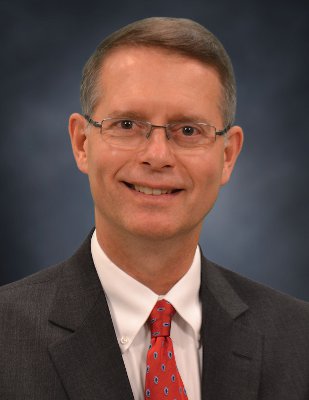The health IT world is changing, and as it does, the CIO role is adapting, as well.
Here, Randy Davis, CIO and vice president of support services at CGH Medical Center in Sterling, Ill., comments on trending health IT issues and future role of CIOs in the healthcare industry.
Note: Answers have been edited for length and clarity.
Question: How did you enter the health IT industry? Randy Davis: Mine has been an atypical path to CIO. I spent 30 years running physician multispecialty group practices [as an administrator]. In 2011, our clinic decided to sell to CGH Medical Center. I kept the same position until about a year after we had a CEO change. One day he walked into my office and stated, "IT here is broken, I need you to fix it," and voila, I'm a CIO.
Randy Davis: Mine has been an atypical path to CIO. I spent 30 years running physician multispecialty group practices [as an administrator]. In 2011, our clinic decided to sell to CGH Medical Center. I kept the same position until about a year after we had a CEO change. One day he walked into my office and stated, "IT here is broken, I need you to fix it," and voila, I'm a CIO.
Q: What is the biggest challenge facing health IT today?
RD: Boil it down and the biggest challenge is putting the right team together. It's about the people. Since it's World Series time, a baseball analogy is in order. If you have the right team, you don't care if the ball is a screamer to 2nd, 3rd, shortstop, a line drive to the outfield, a double play ball; don't care. It matters not because the people you have in place are able to react properly and decisively regardless of what may be thrown at them.
Q: What percentage of budget will be spent on data security and general security versus other issues?
RD: As a stand-alone expense item, this will appear paltry, less than one-half of 1 percent. But that doesn’t really tell the story. When one replaces a core network, it's replaced with encryption-enabled [software]. Same with the SAN. It becomes built into the normal capital update cycle. The difference is data security is always discussed as an element of any IT capital planning. So it's not so much how much is being spent (although it's climbing quickly and every year) as it is having security being in the forefront of discussion of any IT infrastructure planning.
Q: What percentage of the budget is likely going to be devoted by health systems to IT?
RD: For operations, 4.1 percent of revenue in this fiscal year.
Q: What are some of the best practices for running an IT department and CIO office in a health system?
RD: Quit thinking of yourself as a head geek. You're a part of the clinical team in identifying and anticipating the IT resources needed to support the caregivers.
Hire the right people. If you don't have them, get over the short-term pain it causes when getting the right people.
Once you have the right people, be crystal clear in the goals you have for them and then turn them loose. If your goals are clear, they'll do right by you.
Quit using governmental regulations as an excuse for the latest thing we do to clinicians.
Learn enough about the delivery of care to be the person offering solutions instead of the recipient of requests.
Q: What kind of background and experience do CIOs need?
RD: Physicians are the beginning and the end of most healthcare systems. The CIO must be able to swim with those fishes. Years of experience within a healthcare system in a leadership role is the most important thing. I'll take application knowledge over technical knowledge any day. Hire a CIO for brains and integrity, with an absolute willingness to acknowledge the word "team." A near abhorrence of receiving credit sure helps.
Q: What is the greatest challenge facing IT?
RD: There are several: Making CEOs and boards understand that once they decided to create a beast, they have to feed it.
Having a coherent strategy to pull together different clinical and billing systems to make life easier for clinicians.
Finding the right people.
Finding the money needed to meet expectations of end users.
This question is difficult to answer, as healthcare — like politics — is local. Two people in the audience sitting next to one another may hear an answer and one may think, "That's exactly right," and the person next to them will think I'm full of beans. Your local situation plays into strategy much more than what some would have you believe is a "global challenge."
Q: What will the future CIO of a health system look like?
RD: I'm of course biased, but I see the CIO having a much broader based knowledge of the healthcare arena. This CIO would ask more questions, put forward more challenges than and oversee the configuration of the newest SAN switch. I believe CIOs should focus on putting the proper team together, ask challenging questions and do the work necessary to keep their team forward-looking. This CIO would be equipped to go toe-to-toe with physicians, plan more than a year or two down the road and never be thought of as "just the head geek."
More articles on IT leadership:
25 CMIOs to know
The life of a healthcare CIO: Houston Methodist's Robert Eardley
CHIME launches two organizations for IT professionals
